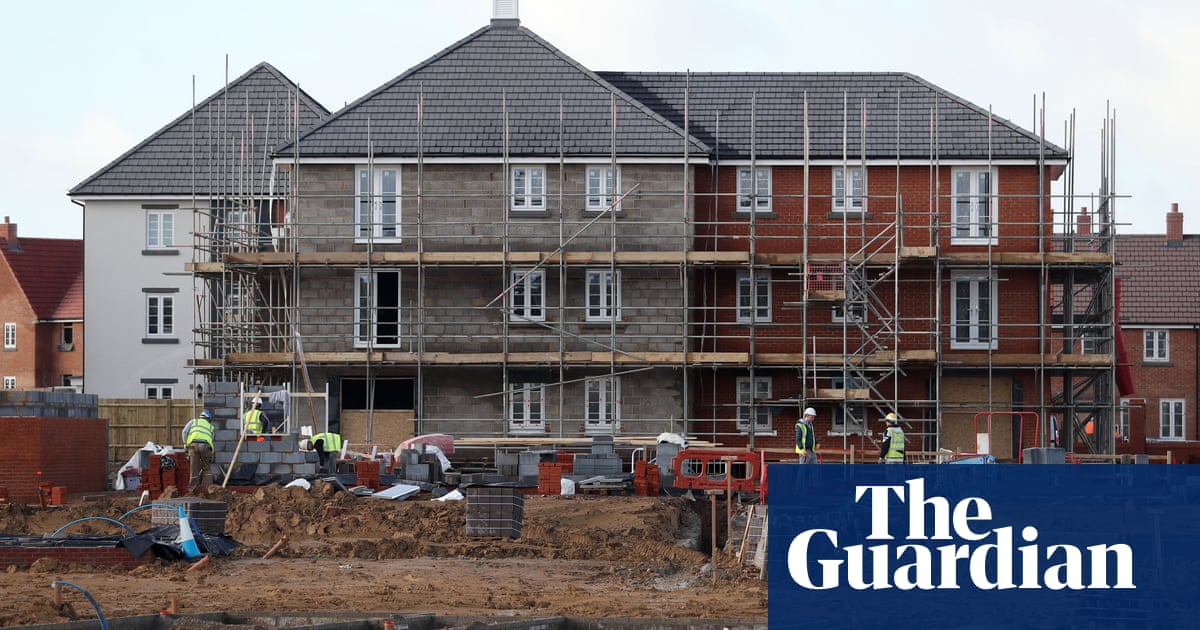
Campaigners have accused the government of dragging its heels over promised changes to the leasehold system in England and Wales, with homeowners still waiting for measures passed by the last government to be enacted.
Residents groups have called on ministers to pass secondary legislation needed to enforce the Leasehold Reform Act, which was voted through with cross-party support.
The act would ban developers from selling new houses as leaseholds, make it cheaper to extend a lease, increase the standard lease length to 990 years and make it easier for leaseholders to take control of managing their buildings, among other measures.
But much of it needs to be enforced by secondary legislation, which is unlikely to need another parliamentary vote.
Despite promising in the king’s speech to enact the act “quickly”, the government has not yet done so as it approaches 100 days in office. Ministers have said recently that leasehold reforms are “highly complex”, prompting concerns among campaigners that the process has slowed down.
Sebastian O’Kelly, the chief executive of the Leasehold Knowledge Partnership, said: “There is no reason for Labour to dawdle on reforming leasehold into the oblivion it deserves … The government also needs to bring in the secondary legislation allowed by [Michael] Gove’s act, to reform enfranchisement and bring in standard format service charge accounts.”
Harry Scoffin, the founder of the campaign group Free Leaseholders, said: “Leaseholders voted for change and an end to the cost of living crisis. That’s why the king’s speech commitments to ‘quickly’ activate the provisions of the Leasehold and Freehold Reform Act 2024 and publish a draft leasehold and commonhold reform bill to finish the job are vital.
“The law is there and a number of policies can be switched on now.”
A spokesperson for the housing department said: “The government will bring the outdated leasehold system to an end. The legislation to do so is a priority for us, which is why it was in our first king’s speech.
“We will act quickly to provide homeowners with greater rights, powers and protections over their homes by implementing the provisions of the Leasehold and Freehold Reform Act 2024.”
Reform of the leasehold system has been an ambition for multiple governments, but meaningful change has proven largely elusive. In 2022-2023, there were 4.8 million leaseholders in England alone, according to government figures, three-quarters living in flats.
Gove, the former housing and communities secretary, promised to end what he called the “feudal” leasehold system altogether, but instead brought a package of reforms to give leaseholders more power within it.
Gove’s act was passed in the dying days of the Conservative government with overwhelming parliamentary support, though Labour said it would go further when in government.
Since coming to office, Labour has enacted minor technical parts of the act. But it has not done so for its more major changes, including the ban on new leasehold houses and a separate provision removing the threat for leaseholders of having to pay the freeholders’ legal costs in any dispute.
Leasehold reform is also rising up the agenda for many Labour MPs, especially those in urban constituencies.
Joe Powell, the Labour MP for Kensington and Bayswater, said: “There were some useful steps forward in the recent legislation but it doesn’t go far enough. The government should now take steps to get the implementation of that legislation right while simultaneously preparing wider legislation to finally bring the entire system to an end.”